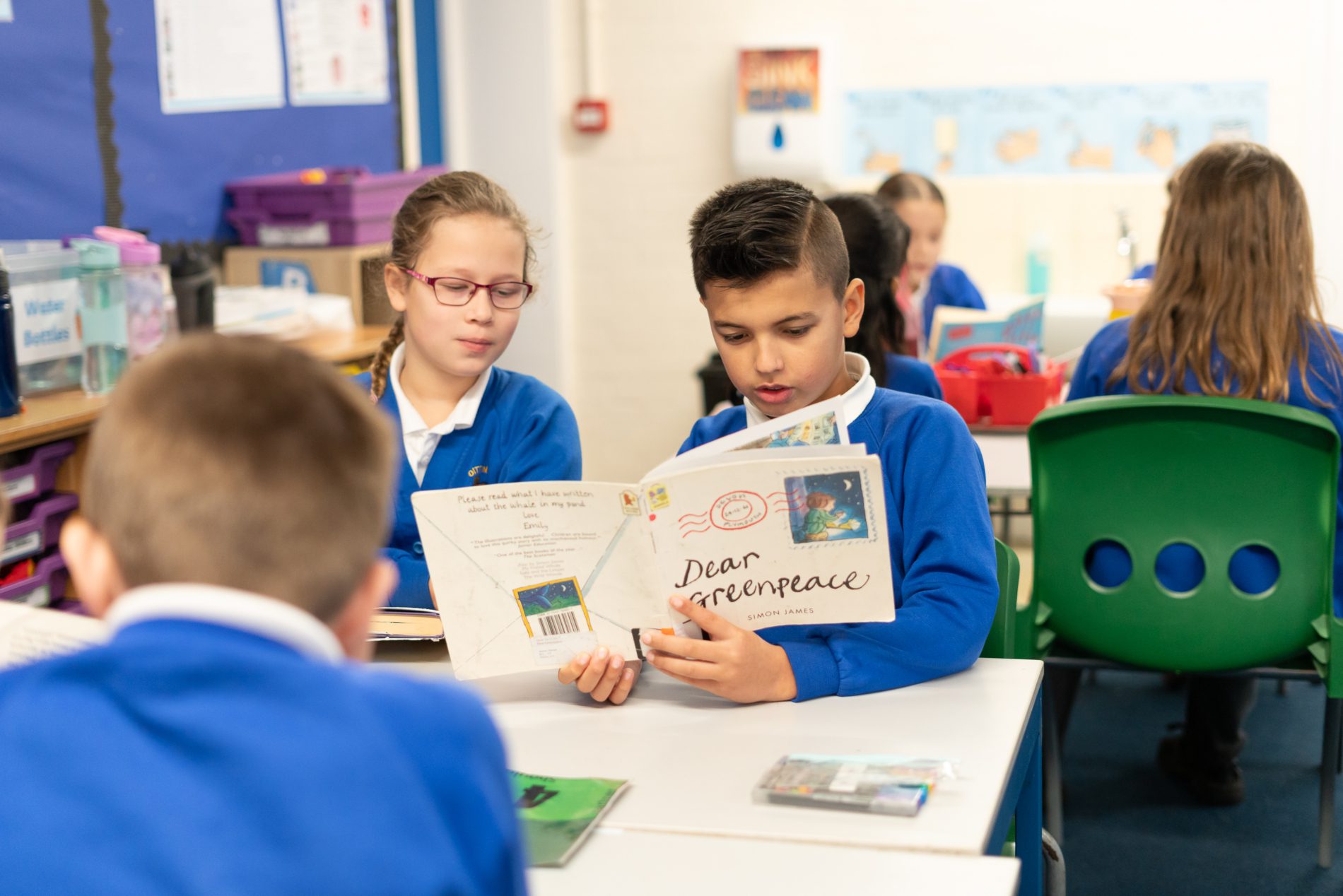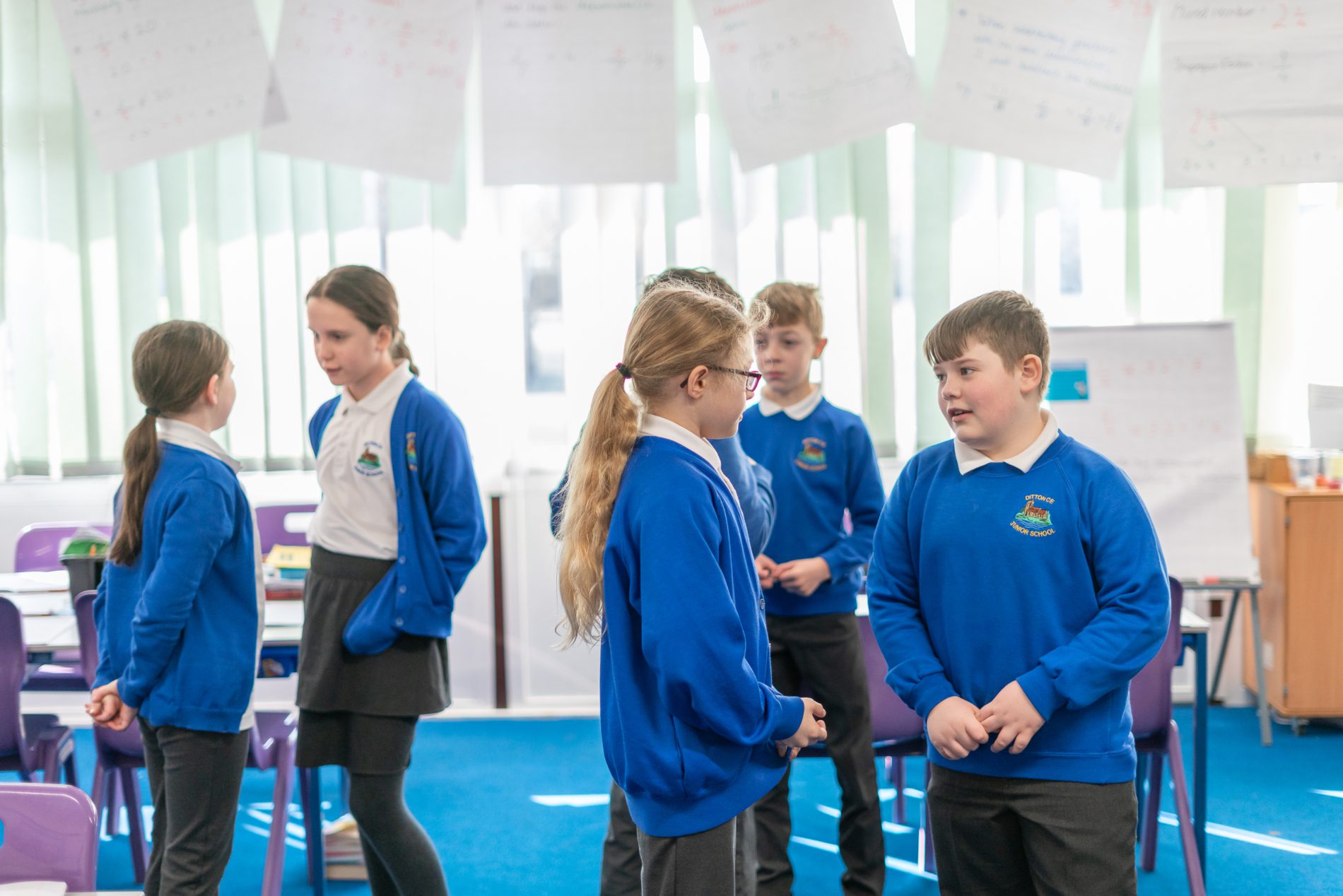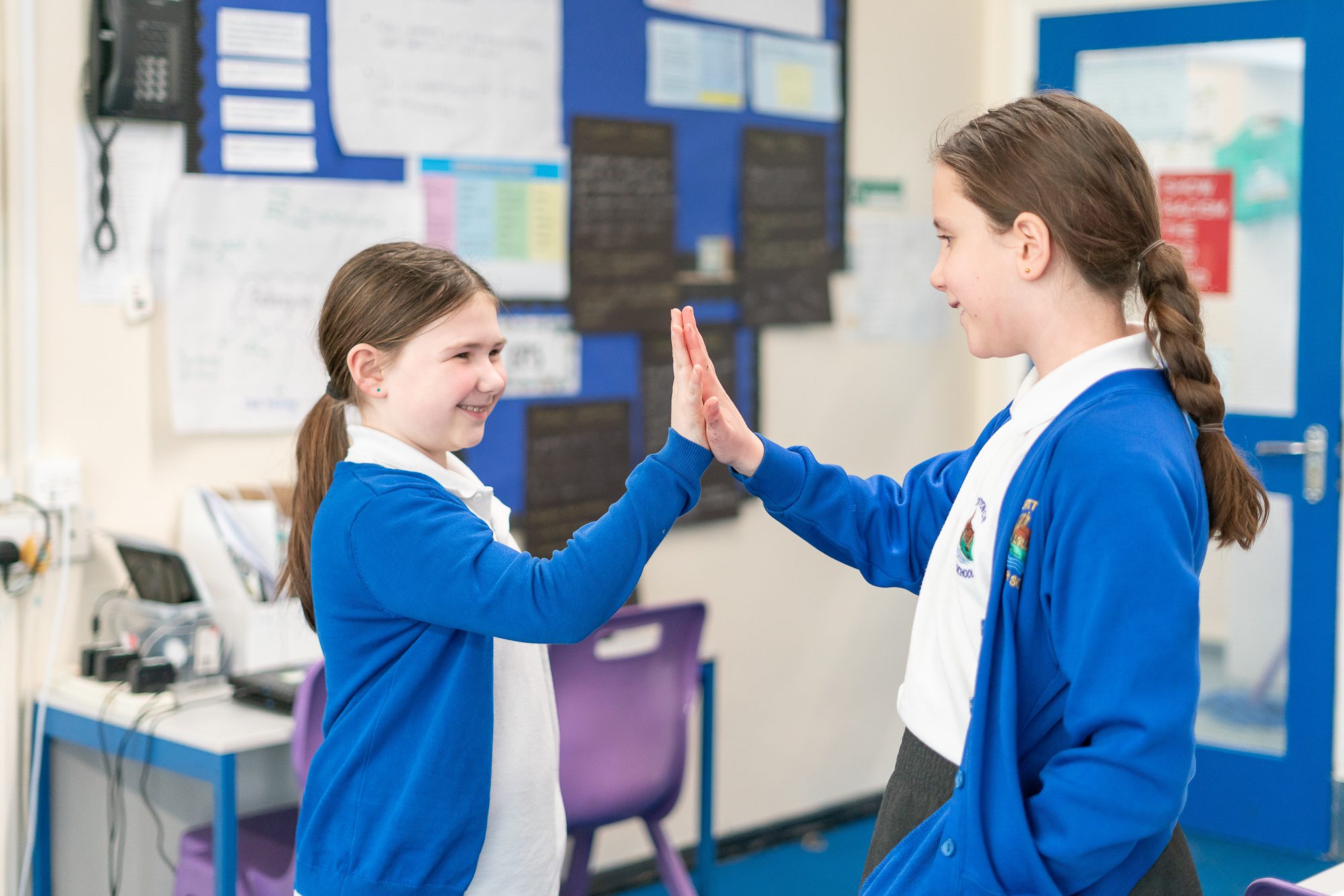Introduction
At Ditton Church of England Junior School we are incredibly passionate about ensuring that our children have a lively, interesting, and fulfilling curriculum that builds on skills and knowledge. Our comprehensive curriculum is underpinned by our Christian Values of Compassion, Love, Perseverance, Respect, and Responsibility.
Statement of Intent
The breadth of our curriculum is designed with three goals in mind:
- To give pupils appropriate experiences to develop as confident, responsible citizens
- To provide a rich ‘cultural capital’
- To provide a coherent, structured, academic curriculum that leads to sustained mastery for all and a greater depth of understanding for those who are capable, with a clear grasp of powerful knowledge
1. Appropriate Experiences
We have developed four curriculum drivers that shape our curriculum, bring about the aims and values of our school, and respond to the particular needs of our community:
Diversity: This prepares our pupils to be global citizens by exposing them to people with disabilities, from different cultures, and social groups, allowing our pupils to be empathetic to the experience of others.
Curiosity: This helps pupils to have the confidence to explore, investigate and immerse themselves in their learning.
Aspirational: This allows pupils to recognise and explore all available opportunities for their future lives to be the best that they can be within all areas
Purposeful: This aids our pupils to become resilient, understanding, and to be persevering individuals in all that they do.
2. Cultural Capital
Cultural capital is the background knowledge of the world pupils need to infer meaning from what they read and experience. It is the currency for social mobility and the acquisition of this will allow pupils to transcend their economic-given status whilst repairing divisions in society caused by gaps in knowledge.
Specifically, cultural capital is powerful knowledge. It includes vocabulary which, in turn, helps pupils to express themselves in a sophisticated, mature way. At Ditton Junior School, the way in which cultural capital is acquired and developed is multi-faceted.
We give pupils access to carefully considered areas of knowledge through our breadth of curriculum design. Pupils are able to develop their knowledge of many topics. Continuous provision also plays a part in the development of each and every one of our pupil’s procurement of cultural capital and further opportunities continue to be reviewed, enhanced and added.


Statement of Implementation

A Coherently Planned Curriculum
Underpinned by our 4 Curriculum Drivers, our curriculum sets out:
- A clear list of the breadth of topics that will be covered
- The Threshold Concepts and Milestones (Learning Intentions) that our pupils will learn
- Criteria for progression within the Threshold Concepts
- Criteria for Depth of Understanding
Sustained Mastery
Nothing is learned unless it rests in pupils’ long-term memories. This does not happen in the short term, and therefore cannot be assessed. Assessment answers two main questions: ‘How well are pupils coping with curriculum content?’ and ‘How well are they retaining previously taught content?’
Cognitive Science Principles
Our curriculum design is based on evidence from cognitive science; three main principles underpin it:
- Learning is most effective with spaced repetition.
- Interleaving helps pupils to discriminate between topics and aids long-term retention
- Retrieval of previously learned content is frequent and regular, which increases both storage and retrieval strength.
In addition to the three principles, we also understand that learning can be invisible in the short-term, and that sustained mastery takes time.
The school’s curriculum content is based upon “Essential Curriculum” model. This involves the children being immersed in a curriculum that is coherent, progressive and is appropriately sequenced to enable our pupils to develop subject specific knowledge and skills to prepare them well for the next stages of their education.
The curriculum builds progressively on from learning acquired by the children within their infant school education. The milestones (2 and 3) that are built into our curriculum, allow the children to embed their knowledge. These milestones are aligned to the National Curriculum and indeed go beyond the National Curriculum requirements. We have mapped out key knowledge and skills for each subject across each milestone (a 2-year cycle). Choosing this approach enables our children to develop meaningful links and opens their eyes to a world beyond their immediate locality. It also builds their cultural capital, preparing them with essential knowledge for their future success. Planning in this way ensures all children have access to a full curriculum which progresses in skills and knowledge across the year – we know that during each milestone every indicator is covered at least twice, so children have the chance to work at a Basic, Advancing and Deep level.
The curriculum implementation emphasises the importance of developing the depth of children’s learning. In essence, this means providing children with increased cognitive challenge, allowing them to apply the skills which they have learnt independently in a range of contexts rather than moving them onto the next skill needlessly when they have not truly mastered it.
Some of our content is subject specific, whilst other content is combined in a cross-curricular approach. Continuous provision, in the form of daily routines, replaces the teaching of some aspects of the curriculum and, in other cases, provides retrieval practise for previously learned content.
Statement of Impact
The impact of the school’s curriculum will be seen through talking with the children and the work they produce, as well as outcomes for all groups of pupils within the school. Everything we do is with the child at mind, and strong relationships are built between pupils and staff which create an atmosphere for learning which is conducive to success.


